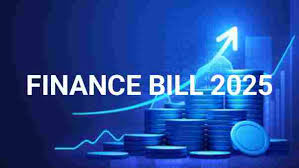In a climate of economic pressure, persistent inflation, and the need for broader documentation, the Finance Bill 2025 brings a noticeable shift in how Pakistan intends to manage its tax base and fiscal priorities. Unlike last year’s bill, which made cautious adjustments, this year’s finance bill outlines a more assertive and digitally-driven path forward. The focus is clear: expand the tax net, encourage compliance, and cut down on leakage.
When you look at Finance Bill 2025 next to Finance Bill 2024-2025, the difference that stands out most is the genuine attempt to ease the burden on salaried individuals. For once, policymakers seem to have taken notice of how hard it’s been for middle-income earners to keep up with rising costs. The previous slab of 5% for income between Rs. 600,001 to Rs. 1.2 million has now been reduced to a minimal 1%. It’s a practical move—perhaps even overdue—that offers some breathing room for working individuals already grappling with higher living costs.
That said, the bill isn’t just about tax relief. It goes much deeper, targeting loopholes in the system that have allowed tax evasion to thrive. The Finance Bill 2025 introduces an ecosystem of digital tools aimed at modernizing enforcement. One such tool is the e-Bilty system, now mandatory for transporting goods within the country. Combined with the expansion of cargo tracking systems and digital enforcement stations, these changes reflect a clear intent to digitize operations and reduce undocumented trade. This is a stark improvement from the previous year, where enforcement mechanisms relied heavily on traditional, paper-based methods that left room for manipulation.
That said, while the intention to crack down on tax evasion is understandable, there’s a risk of pushing smaller businesses into a corner. Many of these operators aren’t avoiding taxes by design—they’re simply not equipped to navigate the system. Last year’s bill took a softer approach; this time around, the focus is clearly on enforcement, even if it means a few growing pains along the way.
One notable addition is the Carbon Levy, introduced at Rs. 2.5 per liter on key petroleum products, set to double in the next fiscal year. While environmental taxes are a global necessity, this one could ripple through to transportation and utility costs, affecting everyday consumers. It’s a step that should have been paired with a clearer roadmap for energy reforms, not just fiscal gains.
The bill also ventures into the digital economy. Online marketplaces, couriers, and payment gateways are now required to collect and deposit sales tax on digitally ordered goods. This plugs a long-standing gap, especially considering how much of Pakistan’s commerce has moved online in recent years. For the first time, digital businesses are being held accountable in a structured, traceable manner.
Even though the Finance Bill 2025 takes a more organized and determined approach than the previous one, it can’t succeed without practical support. Compliance needs to be made easier, not scarier. For small and medium businesses, that means access to basic digital tools, user-friendly training, and a responsive support desk that helps them get on board—without fear of being penalized for honest mistakes.
To check your monthly withholding tax deduction from salary, kindly visit this linkhttps://hajihussain.com.pk/salary-tax-calculator-2025-2026/
For Financial services, please read more


Leave a Reply